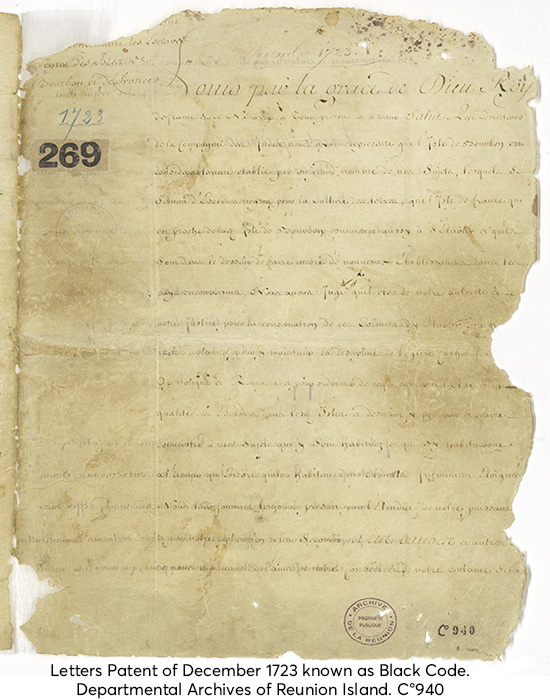1723. A key date for Bourbon island as regards the judicial structure and the legal definition of slavery.

When the November 1723 edict set up a Provincial Council on Ile de France and replaced the one on Bourbon island by a Higher Council, the legislation applicable by the two courts was still that of the Royal ordinances of 1667 and 1670. However, just like the March 1711 edict, the one issued in November 1723 did not define measures specifically applicable to slaves.
During the assizes held in November 1718, the Provincial Council issued an ordinance in line with the practices applied in Martinique. An extract of this document, referring to the punishments applied, declares that “slaves found guilty of rebellion will be broken alive and left to die on the wheel.” No compassion was to be shown for those disturbing the social order.
In December 1723, when the French East India Company requested a general document defining the status of slaves, king Louis XV of France complied by issuing the letters patent, precisely referring to this status as well as the function and the social situation of the slaves, a document based on the 1685 Black Code drawn up for the Caribbean islands.
2023. This legislative document, drawn up at the start of the century of the Enlightenment and defining the enslaved human being as mobile goods having a soul, has already given rise to a number of analyses, including the very thorough and uncompromising work carried out by Louis Sala-Molins, which, three centuries later, deserves to be debated once more.
Consult the program of the symposium